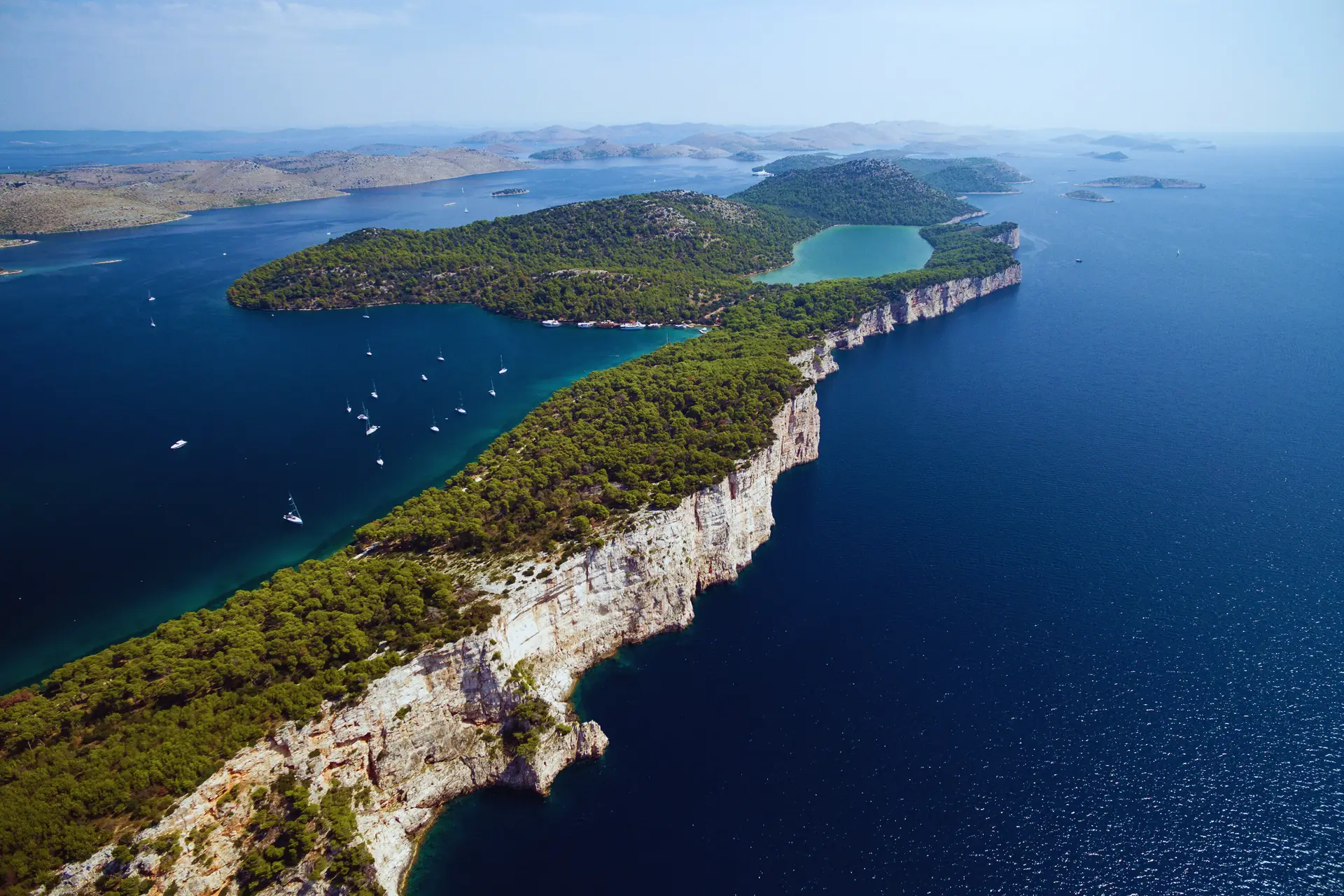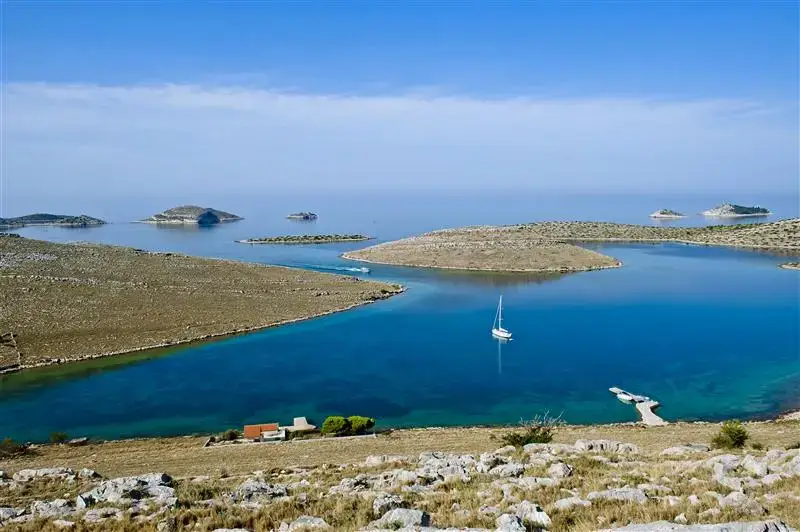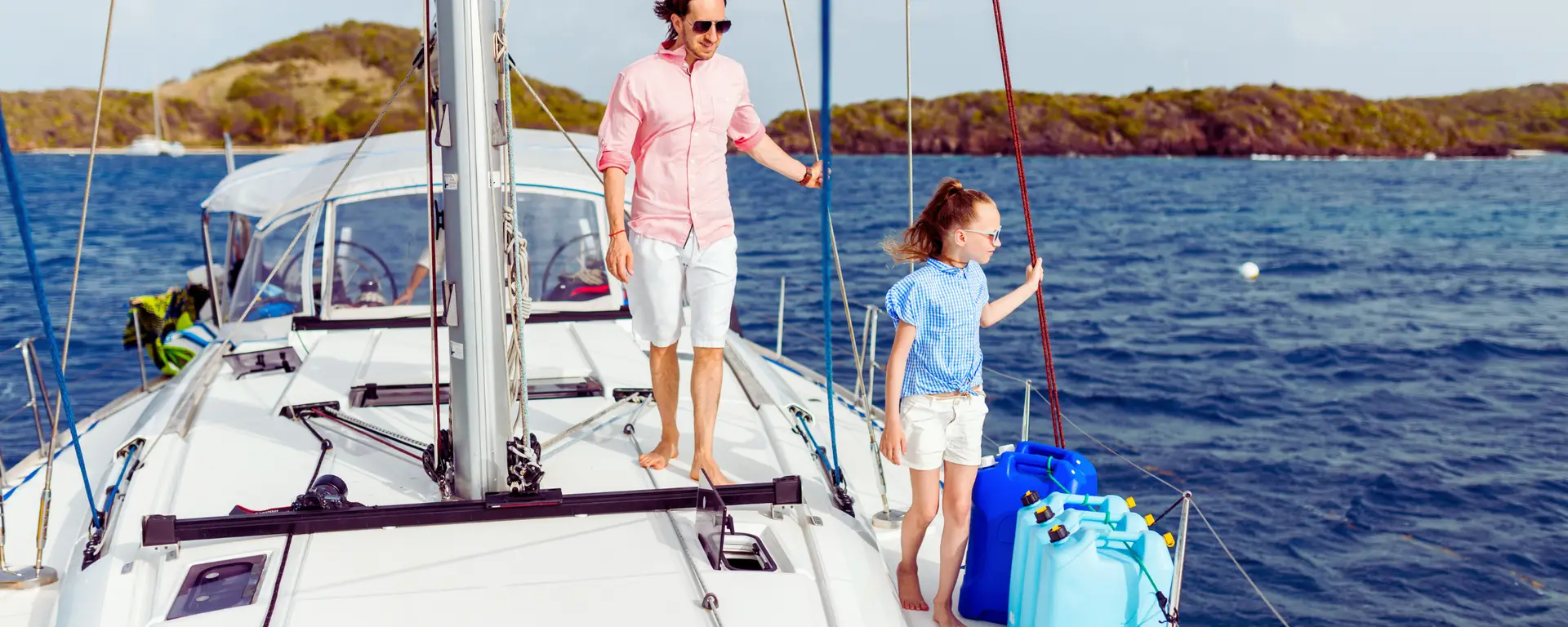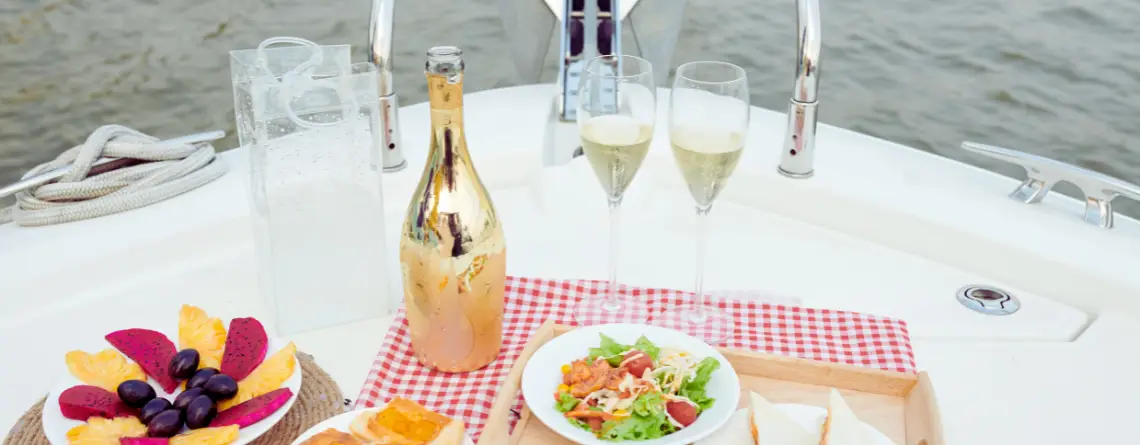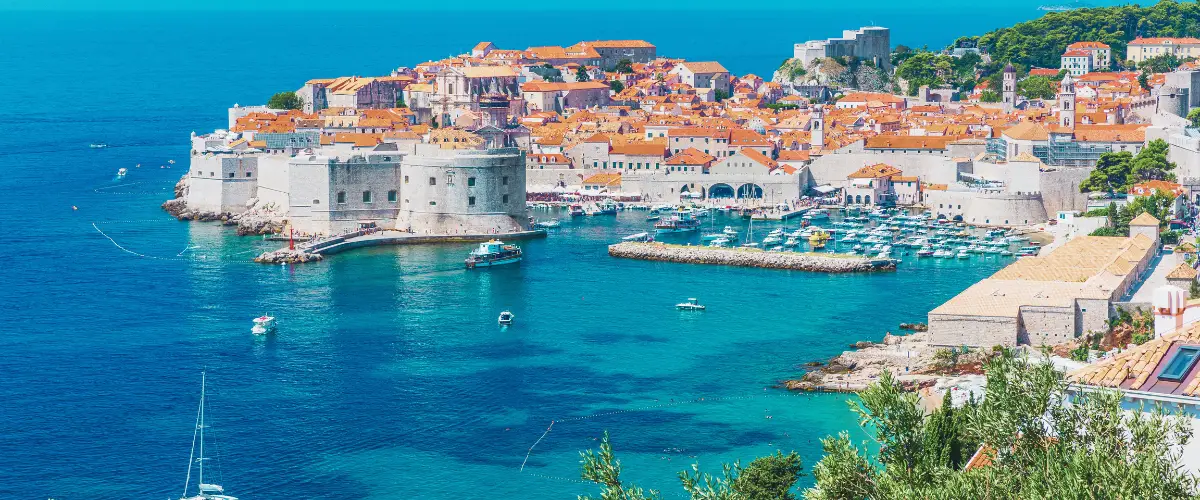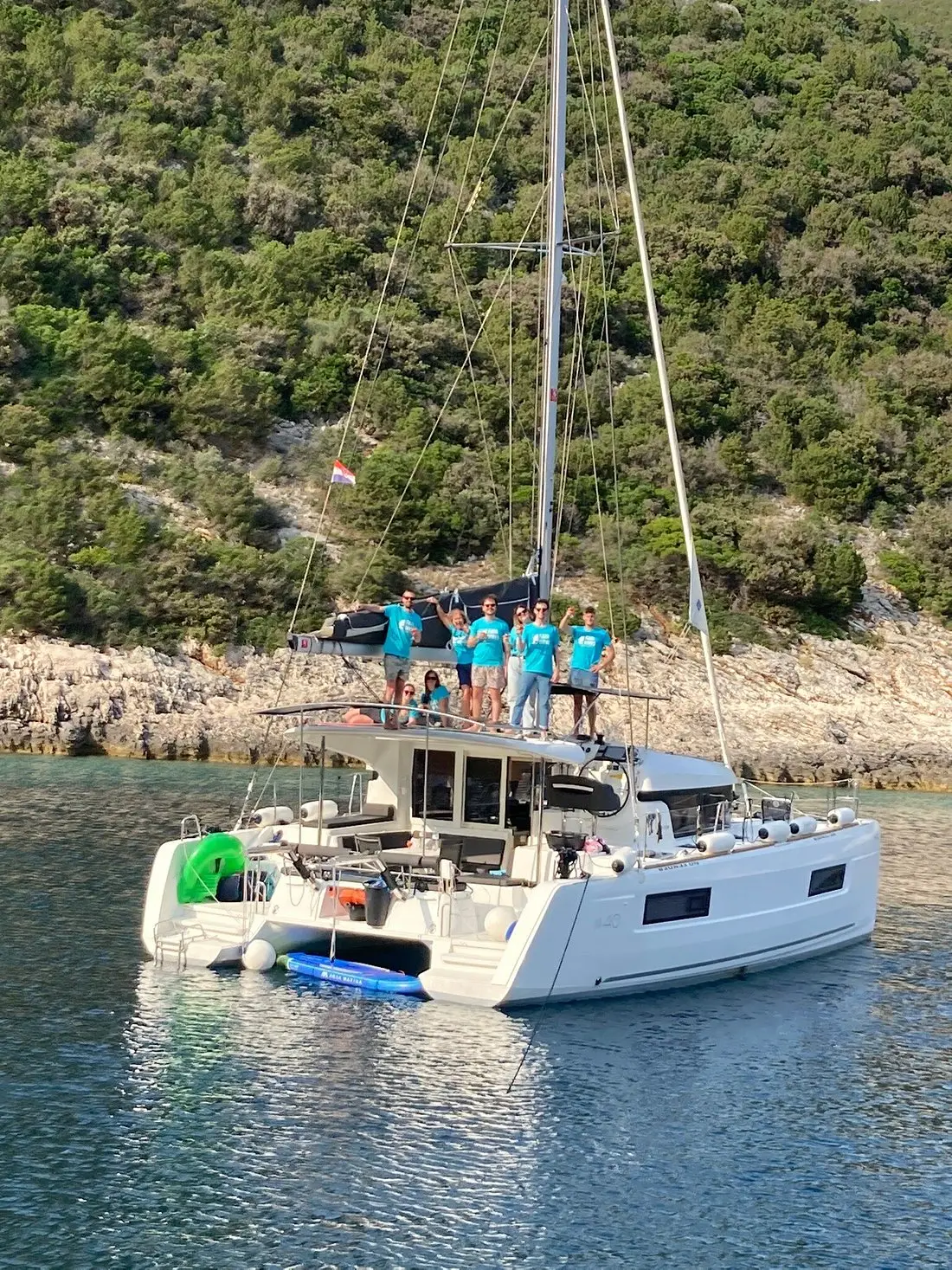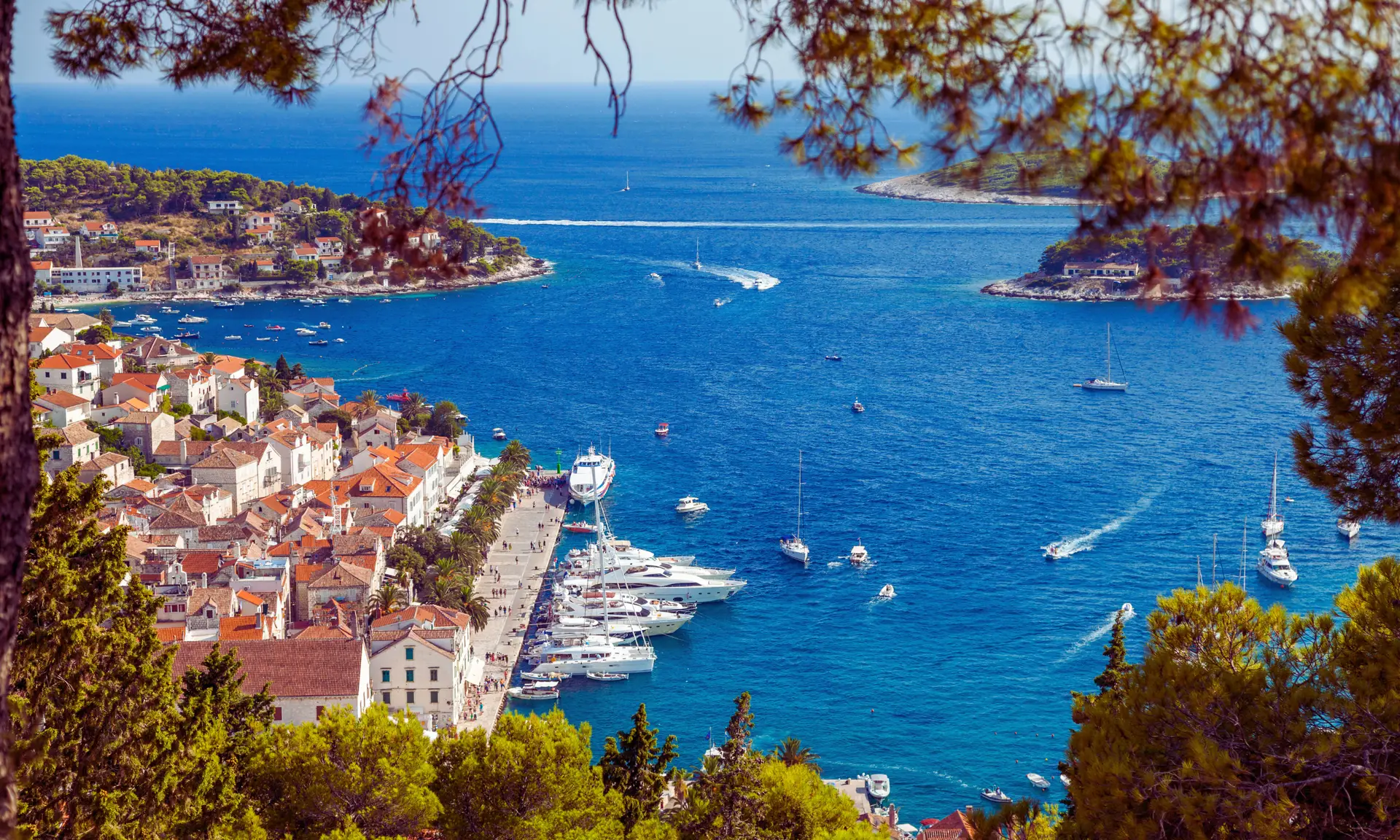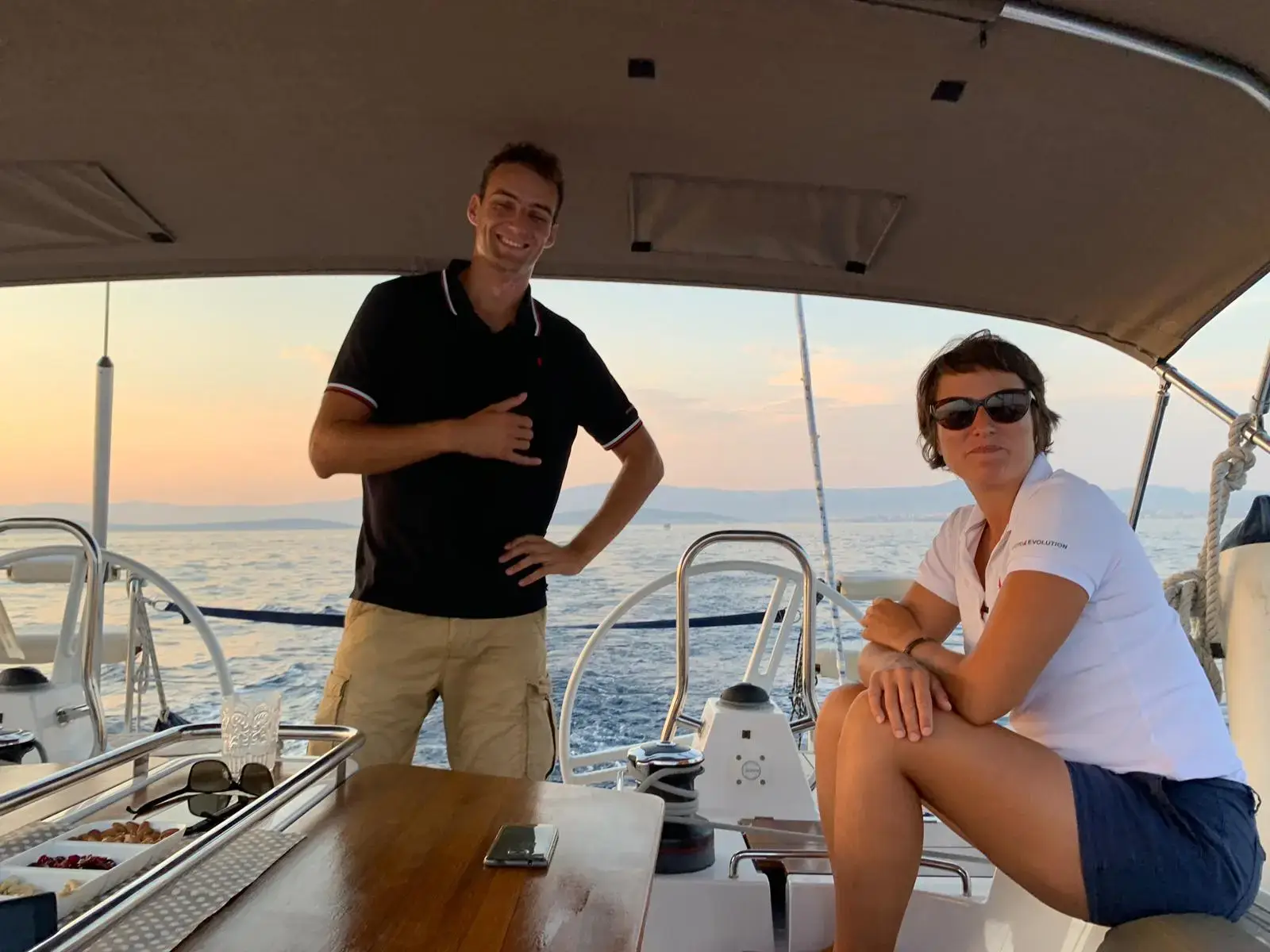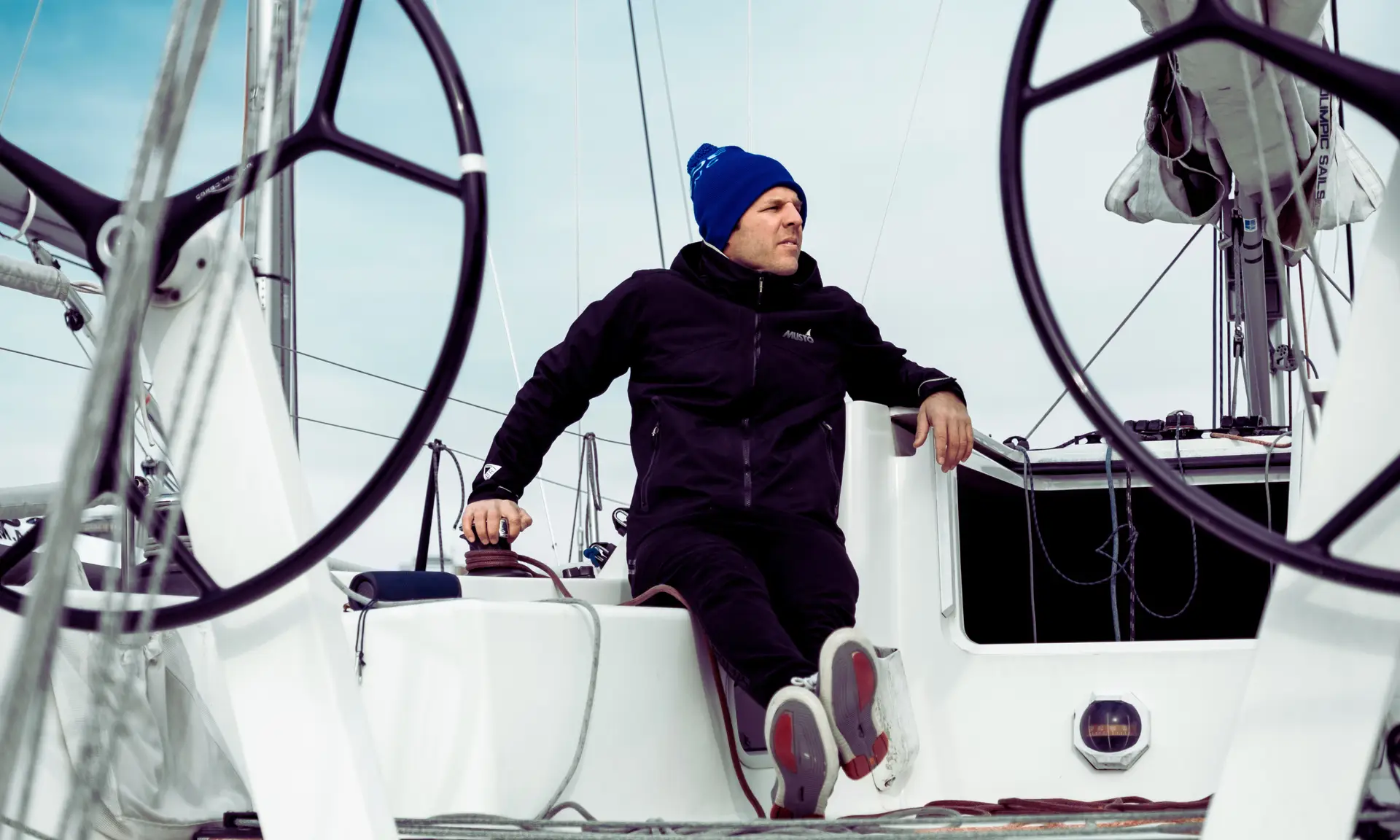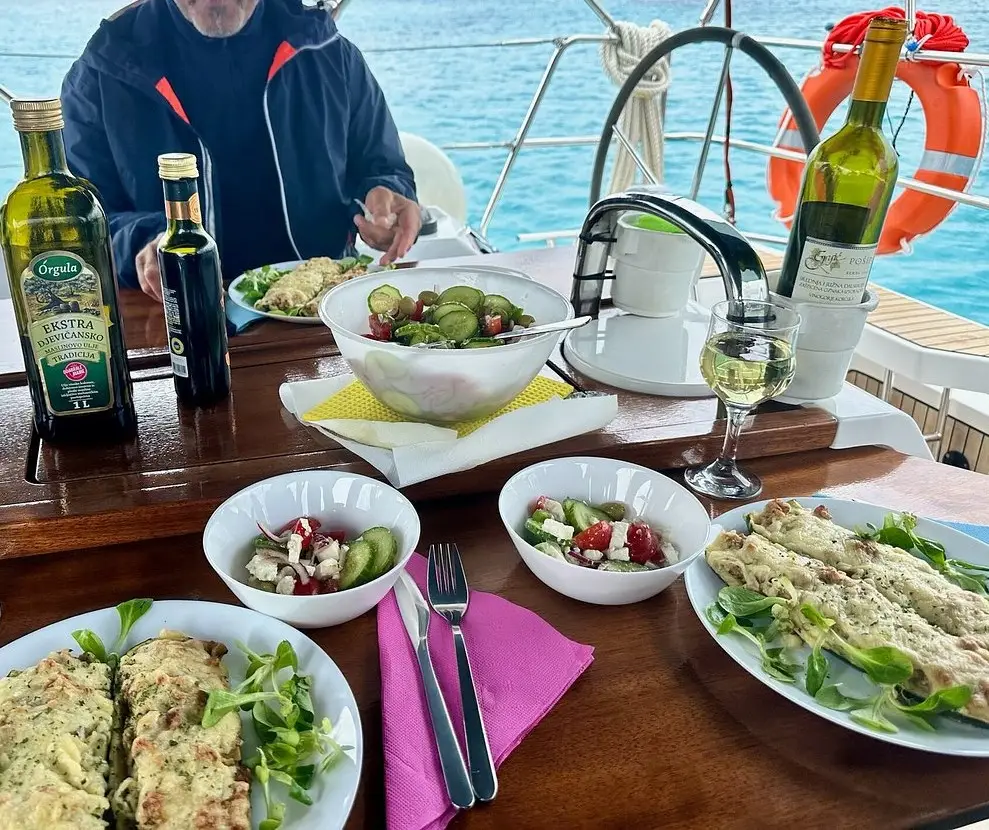Discover the allure of sailing from Split to the Kornati Islands, embarking on a memorable journey filled with enchanting stops along the way.
WHY CHOOSE THE KORNATI ISLANDS FOR YOUR CROATIAN SAILING ADVENTURE?
The Kornati Islands, a captivating archipelago characterized by their rugged beauty, crystal-clear waters, mysterious caves, and enchanting tunnels, are a sailor’s paradise. Despite their seemingly barren appearance, these islands possess a unique charm that is sure to leave you awestruck.
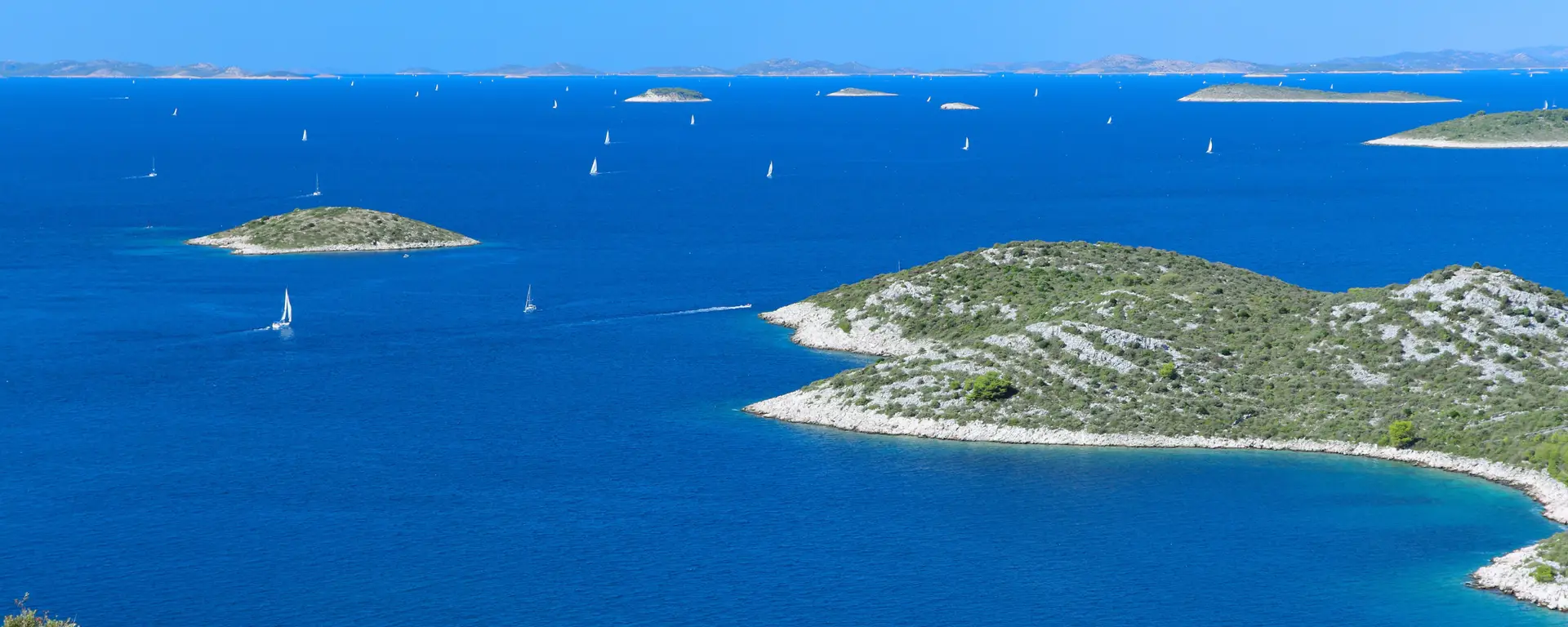
DRVENIK VELI AND DRVENIK MALI: HIDDEN GEMS
Drvenik Veli, although not particularly large, offers tranquillity and natural beauty near the town of Trogir. Its indented coastline is adorned with stunning pebble and sandy beaches. The southern side boasts the picturesque Solinska Bay, while the eastern side is home to the renowned “Blue Lagoon” or “Krknjaši,” where the sea’s mesmerizing colour casts a spell. A quality restaurant awaits, serving the finest seafood dishes.
Drvenik Mali, on the other hand, is a petite island near Drvenik Veli. With only about 50 inhabitants, it offers serene, unspoiled nature and pristine, transparent seas. Its white sandy beaches and calm bay, “Vela Rina,” provide the perfect setting for relaxation and a taste of Mediterranean cuisine.
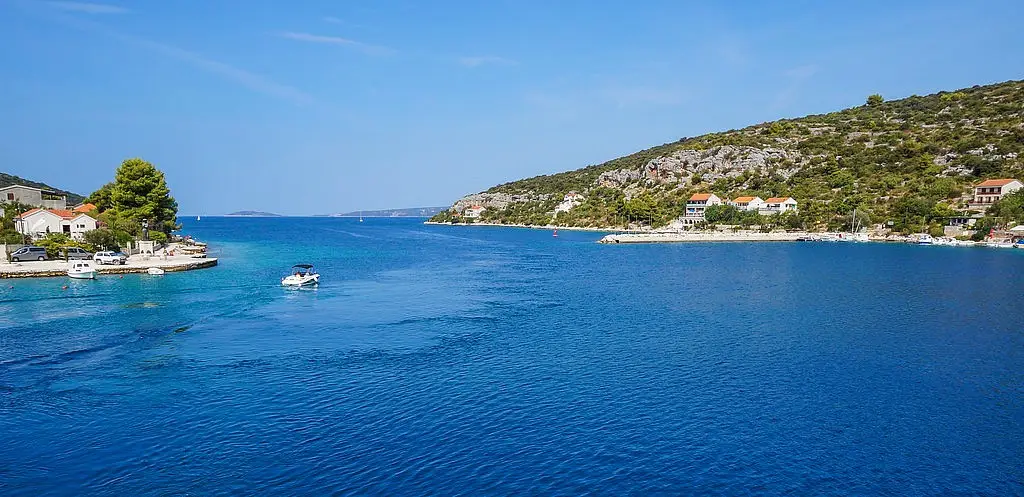
PRIMOŠTEN: A CHARMING PENINSULA
As you sail between Split and Šibenik, the charming Primošten peninsula will captivate you. Once an islet, it transformed into a small peninsula in the 16th century. Primošten’s core remains a quaint fishing village, characterized by stone houses, narrow streets, and a 15th-century church with a bell tower that graces its highest point. This town offers a safe harbour from strong winds and is famed for its old vineyards, including the renowned Babić wine, as well as its beautiful beaches and clear waters.
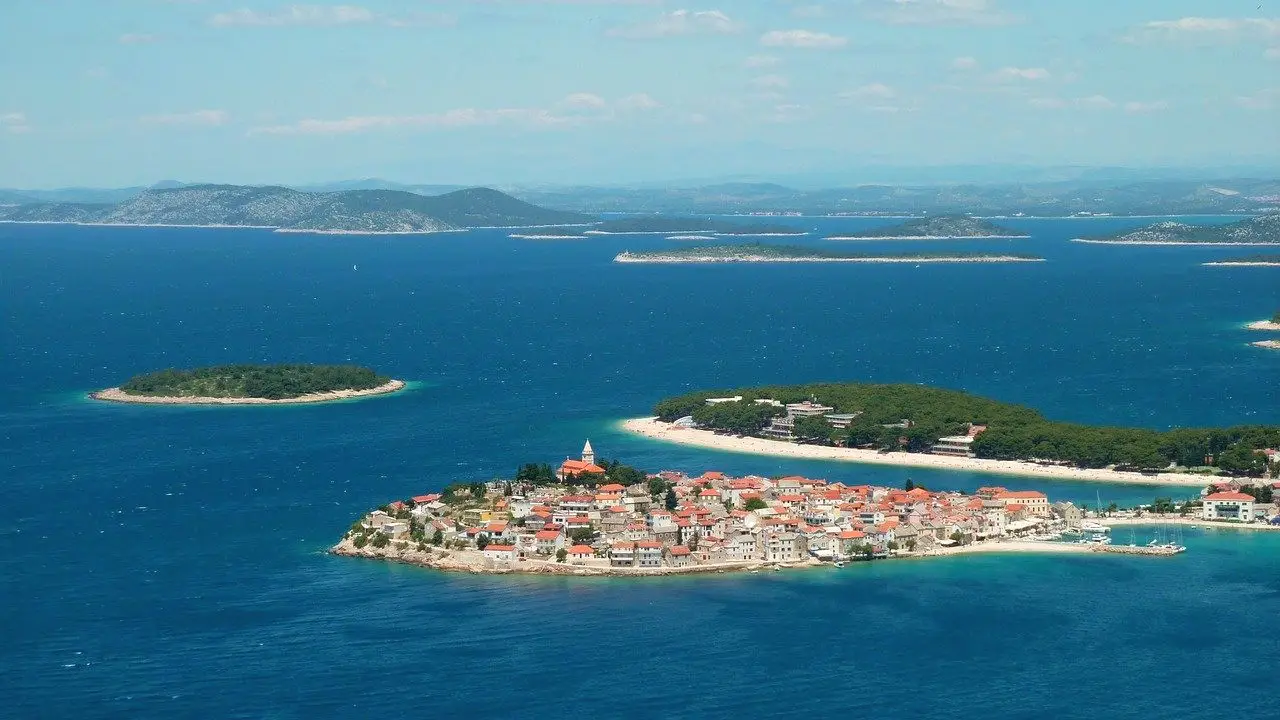
ŠIBENIK: A HISTORIC GEM ON THE ADRIATIC
Šibenik, once a royal capital, now stands as the oldest native Croatian town on the Adriatic coast. Nestled in the picturesque Krka River Bay, Šibenik boasts numerous cultural and historical landmarks. The St. Nicholas Fortress, a UNESCO-protected World Heritage Site, guards its entrance. The city’s jewel, the St. James Cathedral, masterfully combines Gothic and Renaissance styles, making it one of Europe’s most unique structures. Šibenik also offers a vibrant summer scene with events and concerts, appealing to those seeking both cultural enrichment and leisure.
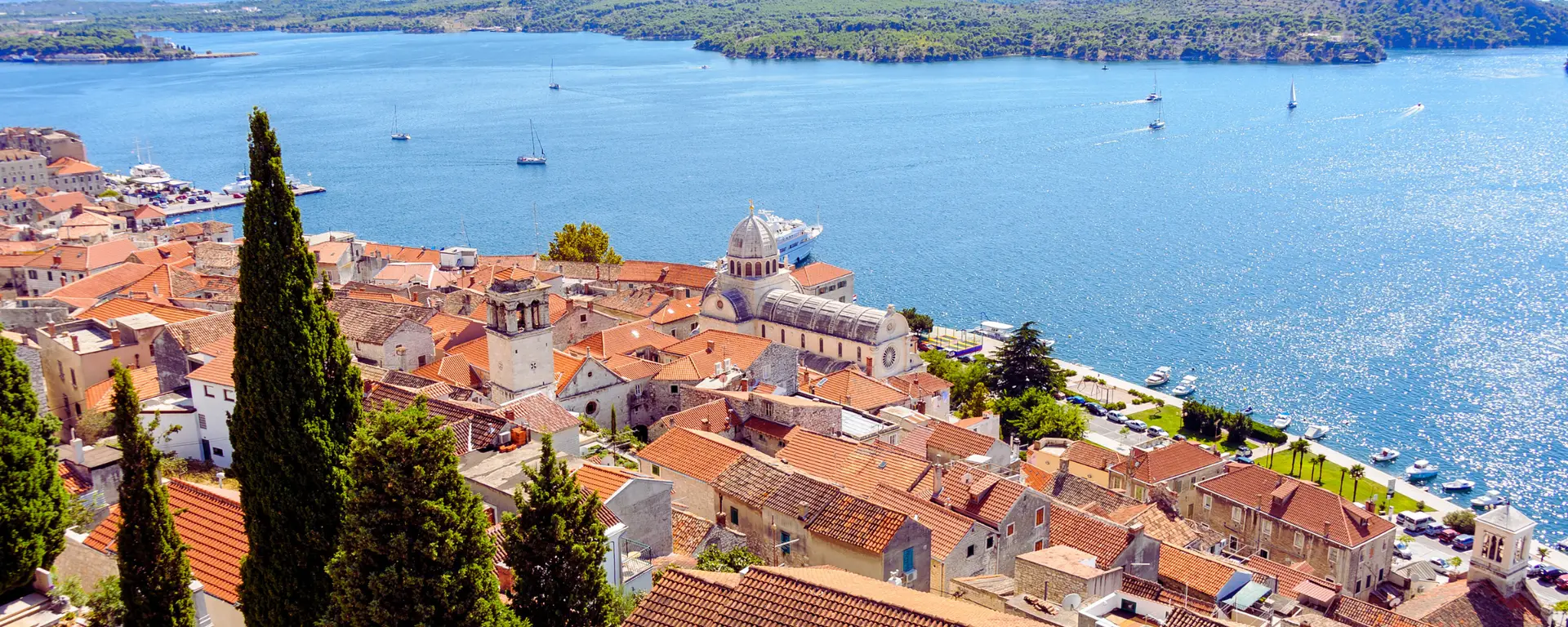
KRKA WATERFALLS: NATURE'S MASTERPIECE
Located near Šibenik, Krka National Park is a natural wonder with magnificent waterfalls and a pristine canyon adorned with diverse flora and fauna. During your Croatian sailing adventure, make sure to explore the park’s extensive network of paths and take boat excursions. Skradinski Buk, a natural pool surrounded by high waterfalls, and Roški Slap, the sixth waterfall, are must-visit attractions. Don’t miss Visovac, a tiny island in the Krka River with an ancient monastery, accessible by boat from Skradinski Buk.
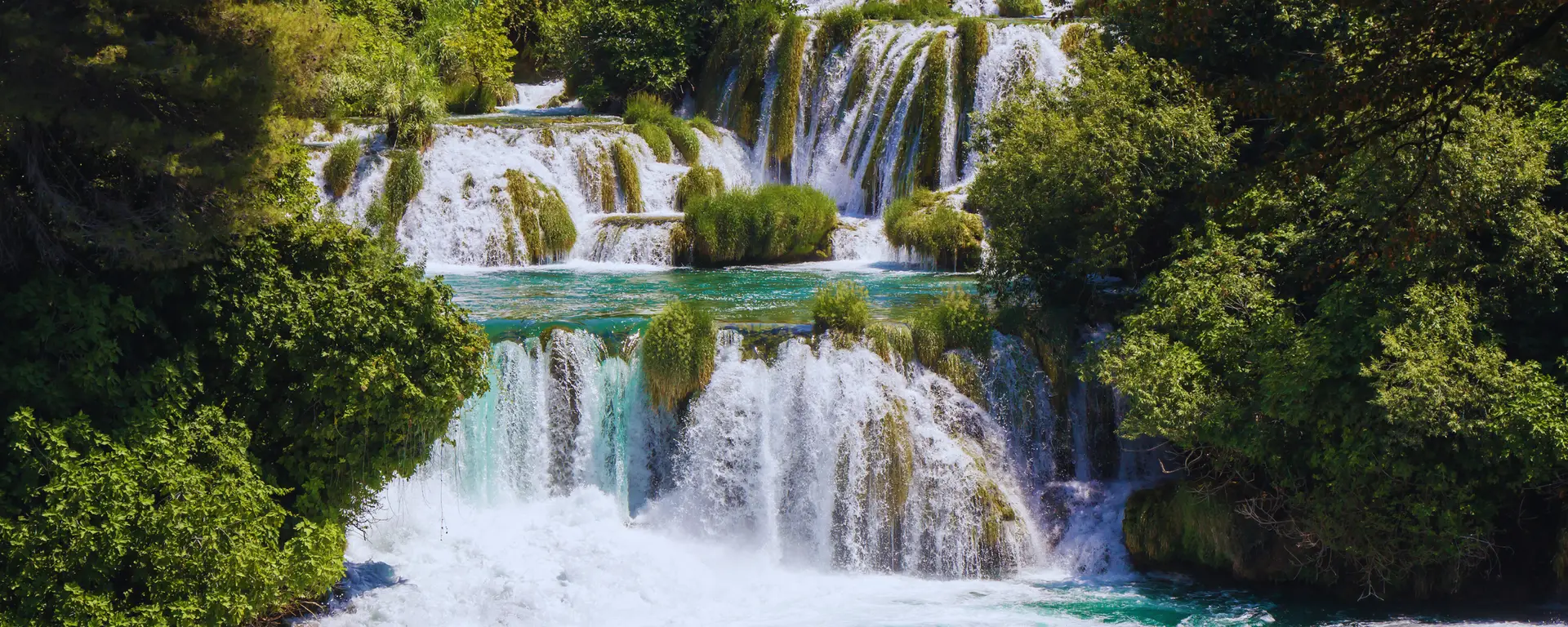
SKRADIN: GATEWAY TO KRKA NATIONAL PARK
The idyllic town of Skradin serves as the gateway to Krka National Park. Situated at the confluence of the Krka River and the Adriatic Sea, this charming settlement features narrow streets, stone houses, and a rich history. Skradin has preserved its Mediterranean character and offers visitors a glimpse into authentic Dalmatian life. It’s the ideal starting point for exploring the natural beauty of Krka National Park.

ZLARIN: A TRANQUIL OASIS
Zlarin, a small island only 2 kilometers from the mainland, is often referred to as the “guardian of Šibenik.” With a population of around 200 residents, this sunny island offers a peaceful escape, shielded from both northern and southern winds. Zlarin’s highlights include its highest peak, offering panoramic views, and the island’s lush flora, featuring fig and cypress trees. The island is also renowned for its red coral-rich waters, and it enforces a no-car policy, ensuring a serene atmosphere.
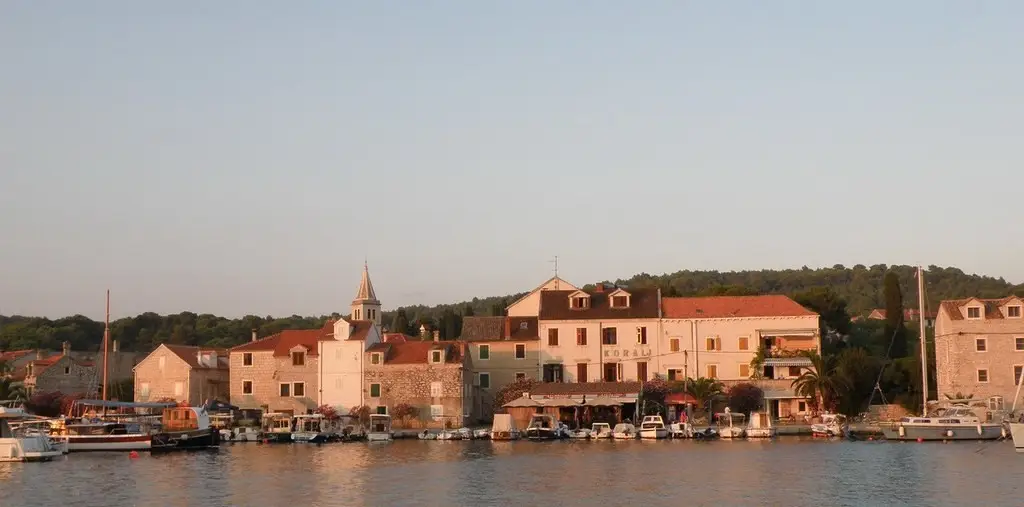
KAPRIJE: AN ISLAND OF SERENITY
Situated in the heart of the Šibenik archipelago, Kaprije is an essential stop on your journey to the Kornati Islands. Settled in the 15th century, Kaprije remains a tranquil island with a single settlement. Its picturesque harbour provides shelter from all winds, and the island is a paradise for hikers, offering stunning paths that lead to olive groves and vineyards. Kaprije’s coastline is mesmerizing, with clear waters that create a floating sensation.
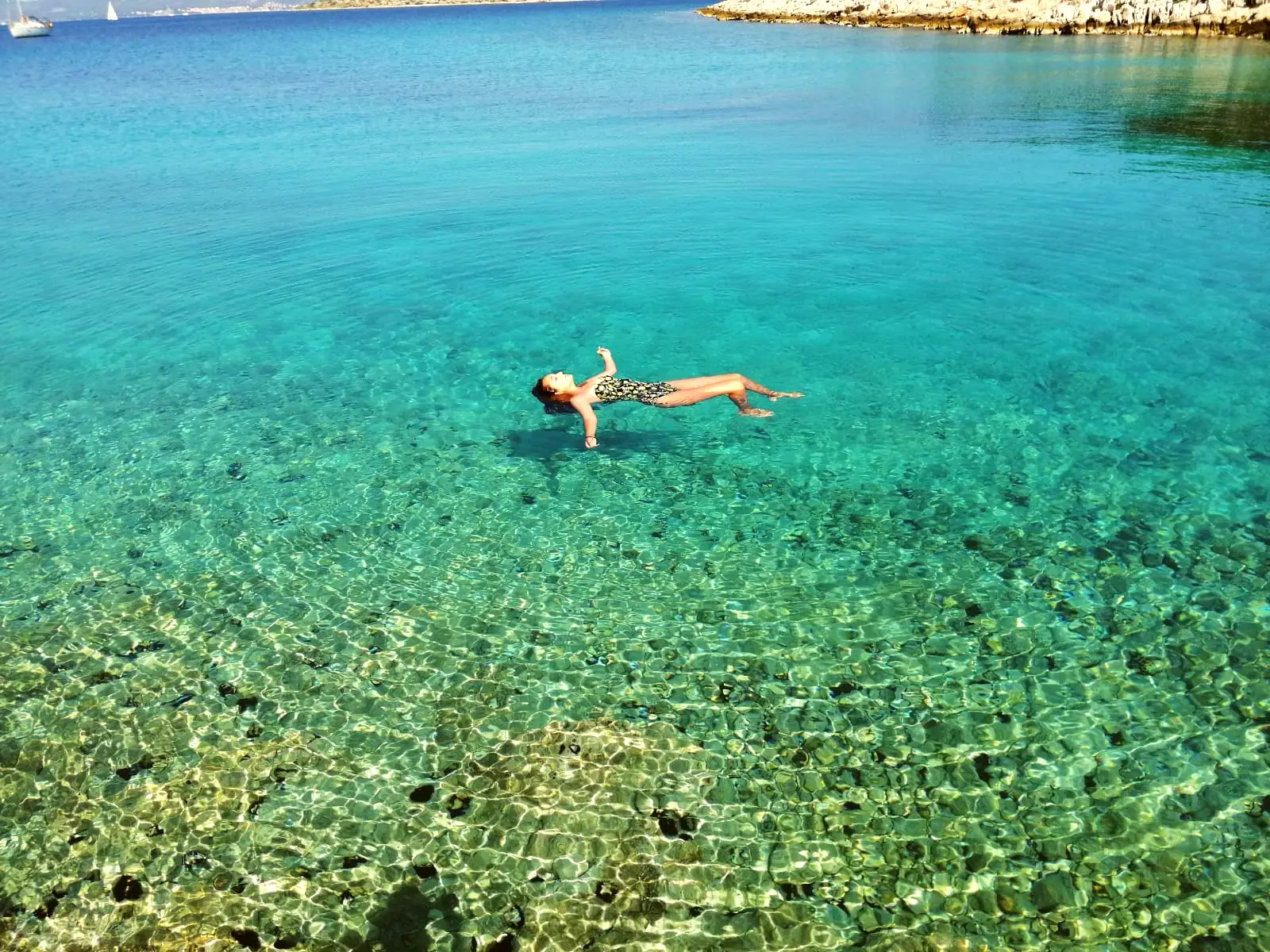
ŽIRJE: A PEACEFUL RETREAT
Žirje, the largest inhabited island in the Šibenik archipelago, is a haven for nature lovers. Rugged ridges, rocky beaches, and fertile farmland define the island’s landscape. Although sparsely populated, Žirje boasts 12th and 13th-century walls and fortresses, testament to its rich history. With limited tourism, Žirje offers an idyllic sailing holiday, far from the hustle and bustle of the mainland.
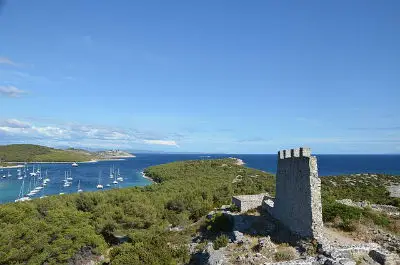
KORNATI ISLANDS: A NATURAL MARVEL
The Kornati Islands, an archipelago of over 100 islands, islets, and reefs, are a true paradise for Croatian sailors. The islands feature sheer coasts, sharp cliffs, and unique landscapes, with 89 islands forming a National Park.
While mostly uninhabited, the largest, Kornat Island, offers accommodations and restaurants during the summer season. Dive into the crystal-clear waters to explore caves, tunnels, and marine life or embark on a hiking adventure to the summit of Metlina Hill for breathtaking views.
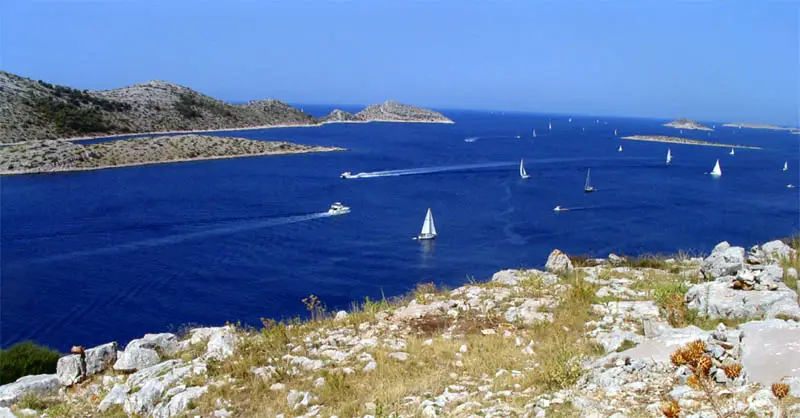
PIŠKERA: A SERENE HAVEN IN THE KORNATI ARCHIPELAGO
Sail to Piškera, a tranquil island in the Kornati archipelago, and savour the contrast between its azure seas and light grey limestone hills. With a surface area of 2.66 square kilometres, Piškera is one of the larger islands in the Kornati group and is home to an ACI marina. Its untouched beauty and secluded bays make it a perfect retreat for sailors.
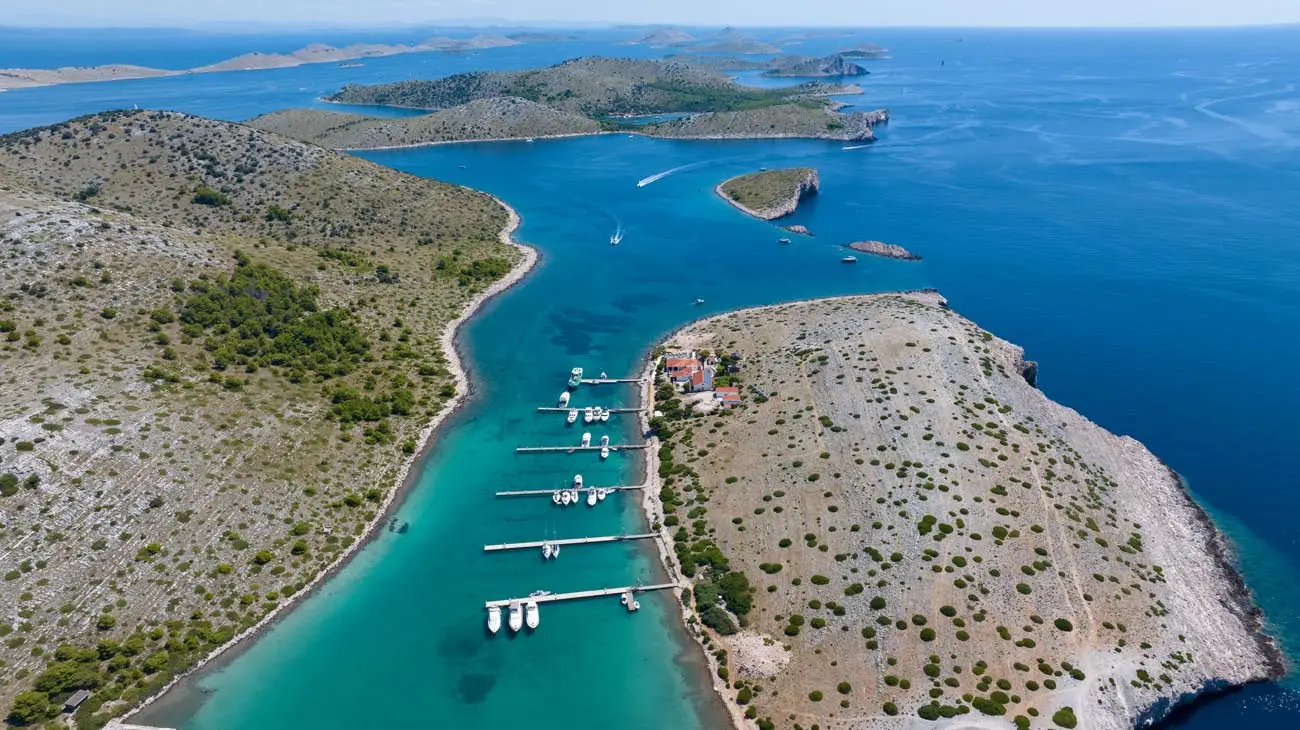
ŽUT: AN ISLAND OF TRANQUILITY
Žut, the second-largest island in the Kornati, is located between Pašman and Kornat. Unlike the National Park, Žut is not part of the protected area. With steep cliffs and secluded bays, it offers peaceful mooring options. No permanent residents reside here, only landowners and fishermen who appreciate its natural beauty.
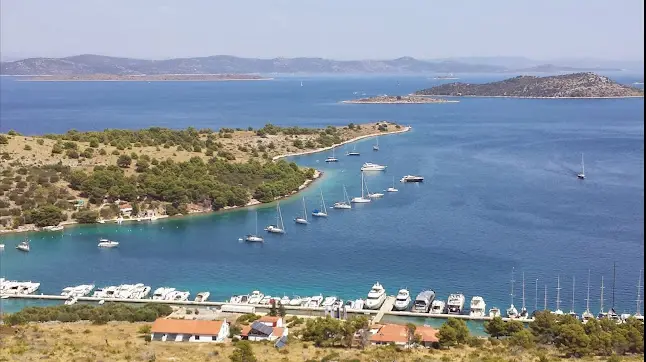
TELAŠĆICA: NATURE'S OASIS ON DUGI OTOK ISLAND
Telašćica, located on the southern part of Dugi Otok island, is a bay and Nature Park that boasts stunning landscapes. From wild, cliffy coastlines to serene, less steep shores, it offers a diverse range of experiences. The park features spectacular beaches, islands, abundant flora and fauna, and a unique salt lake known as “Mir” (Peace). This natural port provides a safe haven for sailors and divers exploring its rich underwater world.
